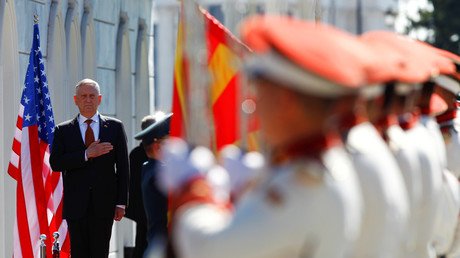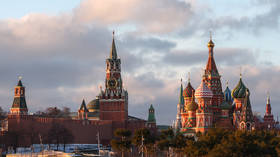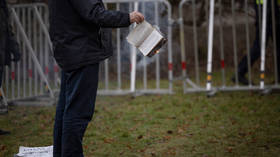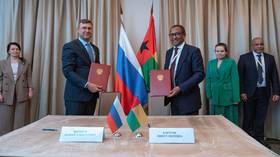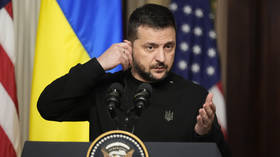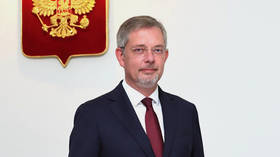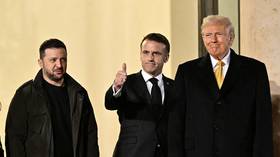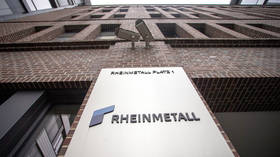Macedonia's failed referendum is blow to Western lobbyists, but govt will seek to join NATO anyway
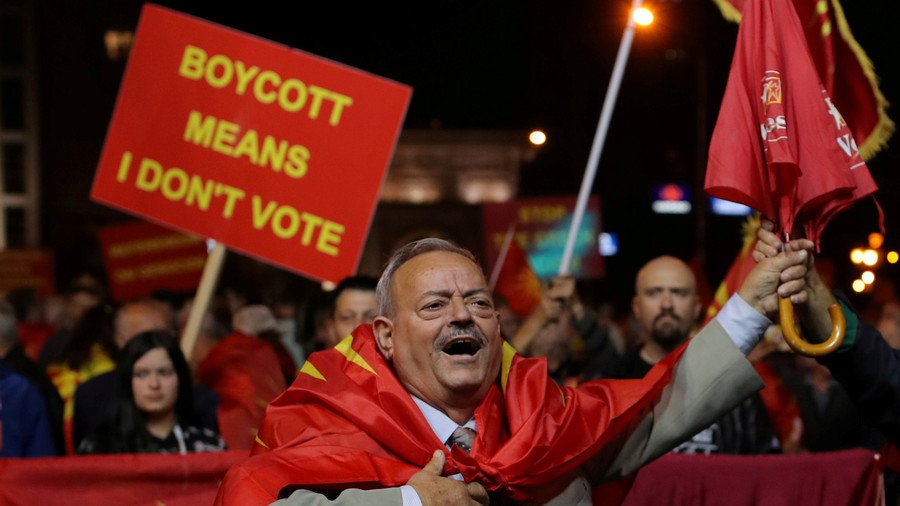
It's not surprising that Western leaders failed to drum up support for Macedonia's referendum, experts told RT, suggesting that Skopje's vow to ignore the result and push ahead with EU and NATO membership is even less shocking.
Despite the slew of Western dignitaries who poured into Skopje to lobby for the measure, most Macedonians chose to stay home for Sunday's non-binding referendum, which would have opened the door for EU and NATO membership.
Some 90 percent voted in support of the referendum, which asked: "Are you for EU and NATO membership by accepting the agreement between the Republic of Macedonia and the Republic of Greece?" but with around 36 percent turnout, the results were invalidated. Macedonia's Prime Minister Zoran Zaev said after the vote that he remains committed to renaming the country North Macedonia, resolving a name dispute with neighboring Greece and paving the way for EU and NATO membership.
READ MORE: Macedonia PM vows to push for name change after referendum fails to reach 50% threshold
The underwhelming turnout, coupled with the government's defiant pledge to carry on with the name change despite its unpopularity, highlights the deep divide between the country's people and its political elite, analysts told RT. They said that the dismal result is a kick in the teeth to Western leaders and top officials who visited the country ahead of the ill-fated vote.
Western meddling?
While the incredibly low turnout presents an unexpected setback for Zaev, it's also a defeat for his Western sponsors, Elena Guskova, head of the Modern Balkan Crisis Studies Center of the Slavic Studies Institute at the Russian Academy of Sciences, told RT.
Enormous efforts were taken by Brussels and Washington to make Macedonia's accession to the European bloc, and the famously offensive defensive alliance, as seamless as possible. Just in the past week alone, a deluge of Western dignitaries graced the Macedonian capital, including German Foreign Minister Heiko Maas, US Defense Secretary James Mattis, and European Union foreign policy chief Federica Mogherini. NATO Secretary-General Jens Stoltenberg, Austrian Chancellor Sebastian Kurz, and German Chancellor Angela Merkel also paid their respects earlier this month.
The "pro-Western" Macedonian prime minister relied upon the help of Washington and Brussels to push through the referendum and resolve the name issue with Athens, Guskova said.
"It is very important for the West to unweave this knot and to remove the influence Russia can potentially exert on Macedonia. That is why [the West] strived so much for this referendum to succeed."
Ironically, Defense Secretary Mattis accused Moscow of meddling in Macedonia's internal affairs during his visit to Skopje, and already, accusations have surfaced that Russia "sought to prevent the Macedonians from going to the polls."
"They de facto blame Russia for the low turnout," Guskova noted, adding that the "humiliating" name change was the real motivating factor behind the referendum result.
The blame game may also be motivated by wounded pride: the West's sudden and intense interest in Macedonia – Merkel's visit marked the first time a German chancellor had travelled to the country, for example – seems to have accomplished little aside from highlighting the disconnect between the country's leaders and its people.
"There is a huge discrepancy between the political elite in the Former Yugoslav Republic of Macedonia and its people," Stavros Mavroudeas, professor of political economy at the Department of Economics in the University of Macedonia, told RT. "The political elite in Skopje is subservient to the Western powers – the EU and US. This creates a gap."
Turning lemons into NATO membership
Although it appears that Macedonians are less than enthusiastic about the name change, NATO and Washington have hailed the referendum's result as a victory. "I welcome the yes vote in [the Macedonia] referendum. I urge all political leaders [and] parties to engage constructively [and] responsibly to seize this historic opportunity. #NATO's door is open, but all national procedures have to be completed," Stoltenberg tweeted.
I welcome the yes vote in 🇲🇰 referendum. I urge all political leaders & parties to engage constructively & responsibly to seize this historic opportunity. #NATO’s door is open, but all national procedures have to be completed.
— Jens Stoltenberg (@jensstoltenberg) September 30, 2018
Responding to the vote, the US State Department urged Macedonia's parliament to go forward with the name change, which would require a two-thirds majority, calling on the country's lawmakers "to rise above partisan politics" and "secure a brighter future for the country as a full participant in Western institutions."
The EU's Enlargement Commissioner, Johannes Hahn, echoed a similar position, telling all parties to "respect this decision and take it forward with utmost responsibility and unity across party lines."
Like so many of the "non-binding" referendums used to rubber-stamp EU and NATO membership over the past decade, it appears that the will of the people can be ignored when the political elite decide that the stakes are too high.
Like this story? Share it with a friend!
